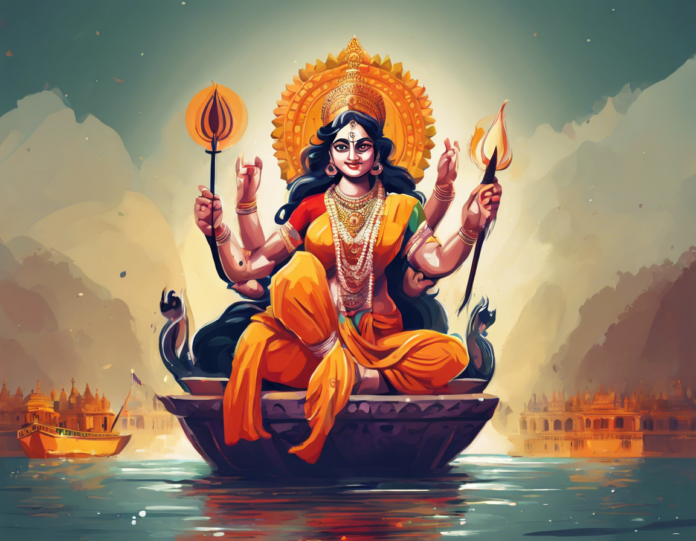Introduction
Ganga Dussehra, also known as Gangavataran, is a Hindu festival celebrated to mark the descent of the sacred river Ganga on Earth. This auspicious day falls on the Dashami tithi (tenth day) of the waxing moon (Shukla Paksha) in the Hindu month of Jyeshtha, typically in May or June. Devotees across India, especially in states like Uttarakhand, Uttar Pradesh, Bihar, and West Bengal, commemorate this day with great reverence and enthusiasm.
The Legend behind Ganga Dussehra
According to Hindu mythology, the descent of Ganga, the goddess of the river, was facilitated by King Bhagirath, who performed rigorous penance to bring the divine river to Earth. This act was seen as a means to cleanse the sins of his ancestors and provide salvation to them. Ganga Dussehra celebrates this event and is believed to bring blessings of purification and prosperity to those who participate in its festivities.
Rituals and Celebrations
Ganga Dussehra is observed with various rituals and practices to honor the river goddess and seek her blessings. Some of the common traditions followed during this festival include:
-
Bathing in the River: Devotees wake up early in the morning and take a holy dip in the Ganges to cleanse their sins and purify their souls. It is believed that taking a dip in the river on this day can wash away all past sins and bring good fortune.
-
Offerings and Prayers: People offer prayers to the goddess Ganga by lighting incense sticks, diyas (lamps), and reciting hymns and mantras. Devotees also make offerings of flowers, fruits, and sweets as a gesture of devotion.
-
Boat Rides and Aartis: In cities like Varanasi and Rishikesh, elaborate aartis (prayer ceremonies) are performed on the banks of the river. Devotees float diyas on leaf boats in the river as a symbol of worship and gratitude towards the goddess.
-
Charity and Feeding: Giving alms to the poor and feeding the needy is considered auspicious on Ganga Dussehra. It is believed to earn blessings from the goddess and promote social welfare.
-
Recitation of Scriptures: Many devotees engage in reading religious texts and scriptures related to the significance of the Ganga river and its importance in Hindu mythology.
Significance of Ganga Dussehra
The celebration of Ganga Dussehra holds immense significance in Hindu culture and spirituality. The Ganga river is revered as a source of life and purity, and its waters are believed to possess healing properties both physically and spiritually. The festival serves as a reminder of the importance of preserving and protecting the environment, especially rivers and water bodies, which are considered sacred in Hindu traditions.
FAQs
-
What is the significance of the Ganga river in Hindu belief?
The Ganga river is considered holy and purifying in Hindu culture. It is believed to wash away sins and grant moksha (liberation) to those who bathe in its waters. -
Why is Ganga Dussehra celebrated?
Ganga Dussehra marks the descent of the Ganga river to Earth and is celebrated to honor the goddess Ganga and seek her blessings for purity and prosperity. -
How is Ganga Dussehra observed in different regions of India?
The festival is celebrated with various rituals such as bathing in the river, offering prayers, performing aartis, charity, and recitation of scriptures in different parts of the country. -
Is it necessary to visit the Ganga river to celebrate Ganga Dussehra?
While taking a dip in the Ganga river holds special significance on this day, those who cannot visit the river can still observe the festival by offering prayers and performing rituals at home or in temples. -
What is the best time to visit Varanasi or Rishikesh during Ganga Dussehra?
Varanasi and Rishikesh are popular destinations to witness the celebrations of Ganga Dussehra. It is recommended to visit a few days before the festival to avoid the crowds and participate in the rituals peacefully.
Conclusion
Ganga Dussehra is a festival that symbolizes the reverence and devotion of Hindus towards the sacred river Ganga. It serves as a spiritual reminder of the importance of water conservation, environmental protection, and the significance of faith in purifying one’s soul. By observing the rituals and traditions of Ganga Dussehra, devotees reaffirm their connection to the divine and seek blessings for a life filled with purity and prosperity.


